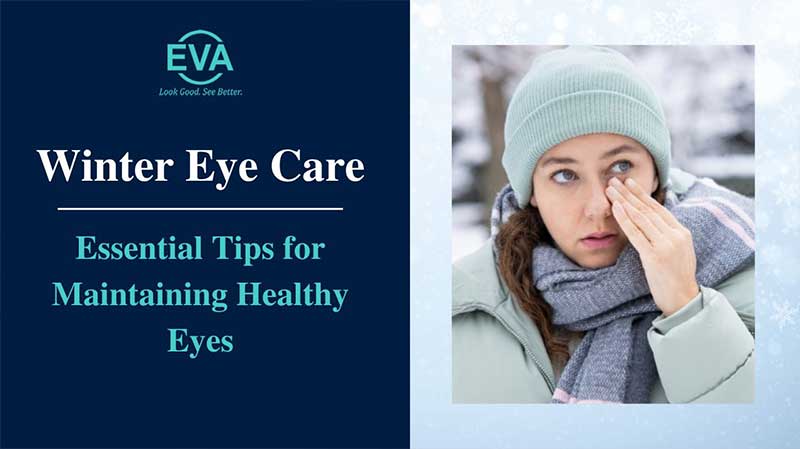Winter Eye Care: 7 Essential Tips for Maintaining Healthy Eyes

As winter sets in with its chilly winds and dry air, it brings along a set of challenges for our eyes. The cold weather can have adverse effects on eye health, leading to dryness, irritation, and other discomforts. In this blog, we'll explore seven effective ways to take good care of your eyes during the winter months, ensuring optimal eye health and vision.
Stay Hydrated:
The winter season tends to be drier, both outdoors and indoors due to heating systems. This dryness can lead to eye irritation and discomfort. To combat this, make a conscious effort to stay hydrated. Drink plenty of water throughout the day to keep your body and eyes well-hydrated. Proper hydration helps maintain the moisture levels in your eyes, reducing the risk of dryness and irritation.
Use a Humidifier:
Indoor heating systems can significantly reduce humidity levels, contributing to dry eyes. To counteract this, consider using a humidifier in your home or workplace. A humidifier adds moisture to the air, preventing your eyes from drying out. This simple addition to your environment can make a significant difference in maintaining comfortable and healthy eyes during the winter season.
Protect Your Eyes from Harsh Elements:
Winter brings harsh elements like cold winds, snow, and UV rays, which can be detrimental to your eyes. Invest in a good pair of sunglasses that provide UV protection. This will shield your eyes from harmful ultraviolet rays, snow glare, and wind. Additionally, wearing a wide-brimmed hat can offer extra protection by minimizing direct exposure to cold winds and falling snow.
Follow the 20-20-20 Rule:
Whether you spend long hours working on a computer or engaging in outdoor activities, it's crucial to give your eyes regular breaks. Follow the 20-20-20 rule: every 20 minutes, take a 20-second break, and focus on something 20 feet away. This helps reduce eye strain and fatigue, promoting better eye health and comfort, especially during the winter months.
Maintain a Nutrient-Rich Diet:
A well-balanced diet plays a crucial role in supporting overall eye health. Include foods rich in omega-3 fatty acids, vitamin A, and vitamin C, as they contribute to maintaining healthy eyes. Fish, leafy greens, carrots, citrus fruits, and nuts are excellent choices. Proper nutrition helps combat dry eyes and reduces the risk of age-related macular degeneration, enhancing your eyes' resilience against winter-related challenges.
Practice Good Eye Hygiene:
Winter conditions can increase the likelihood of eye infections. To minimize the risk, practice good eye hygiene. Wash your hands regularly, avoid rubbing your eyes, and refrain from sharing personal items like towels and eye makeup. If you wear contact lenses, ensure you follow proper hygiene practices, such as cleaning and storing them appropriately to prevent irritation and infections.
Schedule Regular Eye Check-ups:
Regular eye check-ups are essential, regardless of the season. However, during winter, it becomes even more critical to monitor any changes in your eye health. Schedule routine appointments with your eye doctor to address any emerging issues promptly. Early detection and intervention can prevent long-term damage and ensure your eyes stay healthy and comfortable throughout the winter months.
Conclusion:
Taking good care of your eyes during the winter involves adopting a combination of preventative measures and healthy habits. By staying hydrated, protecting your eyes from harsh elements, following the 20-20-20 rule, maintaining a nutrient-rich diet, practicing good eye hygiene, and scheduling regular eye check-ups, with eye specialist doctor in Delhi, you can ensure that your eyes remain healthy, comfortable, and resilient in the face of winter challenges. Prioritize your eye health this season, and enjoy clear vision and well-being all year round.

